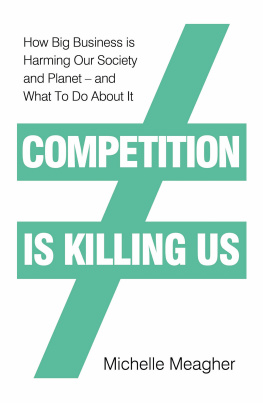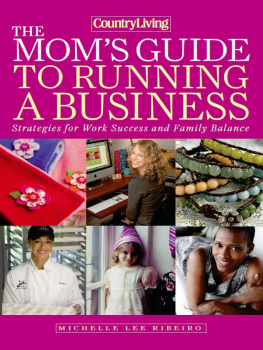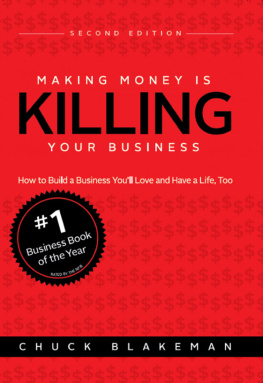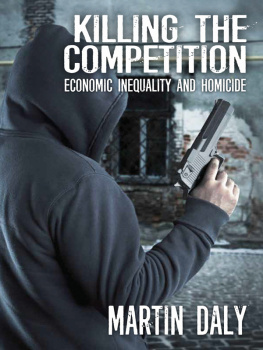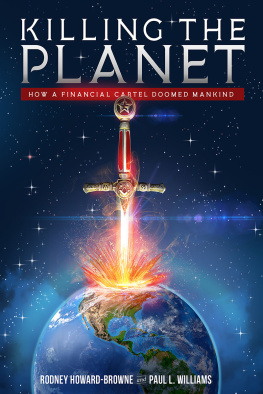

Michelle Meagher
Competition is Killing Us
How Big Business is Harming Our Society and Planet and What to Do About It

Contents
ABOUT THE AUTHOR
Michelle Meagher is a Senior Policy Fellow at the University College London Centre for Law, Economics and Society and co-founder of the Inclusive Competition Forum, a think tank focused on democratizing corporate power and the enforcement of competition law. Michelle is a UK- and US-qualified lawyer, specializing in competition law and corporate governance. Michelle sits on the corporate governance committee of the Institute of Chartered Accountants in England and Wales.
For Indigo, Malachi and Dan, who show me daily what life is really about
Preface: Changing my mind about the free market
It was a spring day like any other for the 4 million people working in the 3,000 textile factories spread across the heaving mega-city of Dhaka, Bangladesh, the fourth largest urban metropolis in the world. Workers made their way from crowded bedrooms into crowded streets, on to crowded rickshaws, down crowded alleys and into crowded workshops, weaving their way through the noisy thoroughfares strewn with discarded rubbish. They took up their places at sewing machines and assembly lines, to earn their 32 US cents an hour, no different from workers starting their day in workplaces all over the world.
Except that on that day, 24 April 2013, one of those workplaces, the complex of makeshift factories that was known as Rana Plaza, collapsed, killing 1,134 people. It turned out that some of those workers were as young as thirteen years old. A further 2,500 people were injured and had to be rescued from the rubble, some regaining consciousness only weeks later. It was the deadliest structural failure in human history.
The story soon emerged that dangerous cracks in the buildings facade had been reported the day before, and parts of the building had been evacuated. But the seamstresses and machine workers had been ordered to return to work the next day or face dismissal. Cheap jeans, bound for Western markets, will not sew themselves.
On the day that Rana Plaza collapsed, the lives of the surrounding community were changed for ever. The news ricocheted across the world, making headlines in the US, UK and across Europe. Under intense media scrutiny, clothing brands and suppliers frantically tried to establish whether their garments were made in that factory, revealing the awful truth that many of them were not immediately sure either way. But then the global news agenda moved on, and the fast fashion machine built on a business model of cheap, disposable clothes and cheap, disposable workers cranked back into gear, with the brands giving only hollow commitments to increase safety.
The Rana Plaza collapse is often labelled an accident, even though it was foreshadowed just a few months before by the Tazreen factory fire in Dhaka, which killed over 100 people. Fashion is considered a competitive industry. If safety standards are not adequately enforced or maintained, if unappealing work and appalling working conditions land in the poorest countries, and if tragedy is the price of productivity, it is no ones fault no one has the power to do other than what the market allows.
But the commercial pressures that squeeze factory owners, clothing brands, and even the workers and consumers, suggest that the tragedy was not an accident it was systemically inevitable. The product is not clothes, the product is cheap clothes, and the business model is simple: outsource manufacturing to the cheapest possible factories, remaining wilfully blind to the real sources of the cost savings. Primark, Matalan, Benetton, Bonmarch these are high street brands, worn by millions of people in the West. The clothes are cheap but the business is enriching. In fact, the owner of Zara, one of the brands implicated at Rana Plaza, is one of the richest people in the world. If we treat Rana Plaza as an accident, we cannot learn the right lessons and prevent such a disaster from happening again.
We need to see Rana Plaza for what it is: an extreme manifestation of a system designed to value money over human lives, and which does not place enough responsibility on those who could do something about it. Corporations, with the power to push costs on to the public, enriching those who are already wealthy, with businesses that take more than they give back to society, face little in the way of accountability or punishment. It is raw power, embedded within our economic system, which we consistently fail to see. The moment of reckoning never seems to come.
Unless the executives of the companies whose clothes were produced at Rana Plaza happen to have been uniquely sociopathic, we must assume that no human being involved in the chain of decisions and omissions that led to the collapse wanted it to happen. So how did it happen? How did they get away with it? And why, after such a catastrophe, have things not fundamentally changed?
Career capitalist
For me, the tragedy at Rana Plaza held a personal resonance. Although I have lived most of my life in the UK, I am Bangladeshi by origin and my mothers family comes from Dhanmondi in Dhaka, just fifteen miles from the Savar Upazila district where Rana Plaza sat. My parents rarely tell us stories of home, in an effort, I think, to insulate us from the weight of our history. But with the precious few family legends they do recount, the moral of the story is always the same: my parents uprooted themselves and made a life in a foreign land, thousands of miles removed from their families, traditions and culture, so that their children would never have to suffer the fate of those 1,134 people.
We were raised in the UK, with the opportunity to attend some of the best universities in the world. But, unlike my siblings, I opted not to fulfil my parents wishes to save lives, one by one, by becoming a doctor. No, I would save them en masse by becoming a competition lawyer, spreading freer and more efficient markets around the world with every legal submission and brief.
Competition law or antitrust, as it is called in the US is about maintaining fair competition in undistorted markets. Free markets, I believed, were the key to delivering education, healthcare, democracy, peace and, above all, the flourishing of the human spirit. No profession could be more noble than the one tasked with defending the freedom of the markets. And so I embarked on a degree in Philosophy, Politics and Economics at Oxford University, studied competition law at graduate school at Georgetown, Washington, and went to work for some of the biggest law firms in the world.
Fast-forward ten years into my free market career and I found myself with my eyes glued to the television screen. It is not often that you see so many petite, brown women on every major news channel, but here they were women who looked just like myself and my sister, except for the saris and salwars, the bindis and betel nuts. And they had been crushed to death by the hazardous building in which they worked. How could such a thing happen in the twenty-first century? Surely this was too terrible a price to pay for free market competition? Was this the benevolent freedom of markets that I, as a competition lawyer, was supposed to be upholding?
Next page
